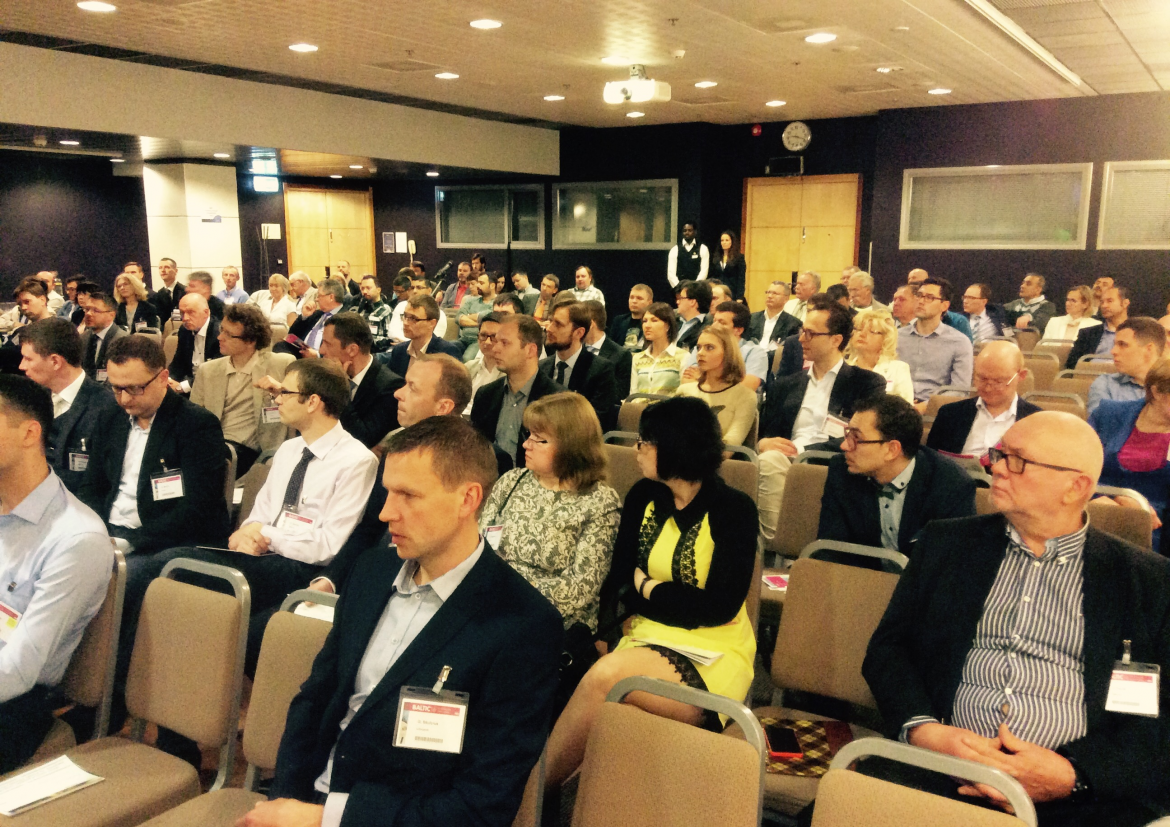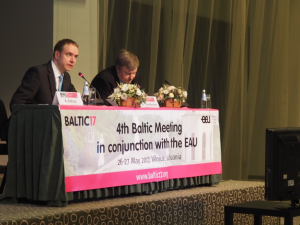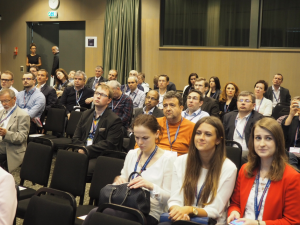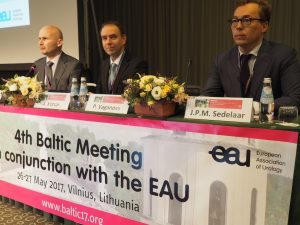Urogenital cancers, stones and functional urology will top the meeting agenda of the 4th Baltic Meeting in conjunction with the EAU (BALTIC17) which will be held on May 26 and 27 in Vilnius, Lithuania.
“We will examine the main issues such as urogenital cancers, stones, reconstructive and functional urology with the aim to provide skills training to young urologists. As a platform for the Baltic countries, this meeting offers the ideal opportunity to challenge and closely examine our clinical practices,” said Prof. Mindaugas Jievaltas (Kaunas, LT), who is co-chairing the annual meeting with Prof. Feliksas Jankevicius (Vilnius, LT).
Jievaltas said that similar to previous meetings, the event aims to encourage and promote the work of young urologists. Results or outcomes from innovative research studies and trials will be presented in six abstract sessions that covers the breadth of urology. The Young Urologists Competition will also be held with participants from the host country, Latvia, Estonia and Belarus.
“It is important for young doctors and researchers to receive critical feedback and keep the dynamic exchange amongst them. The 4th meeting will also welcome the participation and attendance of our colleagues from Belarus, and this is a positive development as we can actively exchange ideas and strengthen our links with urologists from these countries,” added Jievaltas.
Treatment strategies
Jankevicius said the meeting will examine current challenges in treatment strategies for urological malignancies.
“For several decades, there had been no standard of care of patients with metastatic bladder cancer who progress despite platinum-based chemotherapy. Immune checkpoint inhibitors have shown anti-tumor activity and significant improvements in outcomes across several cancer types,” Jankevicius said. He said among the invited speakers is Prof. Marc-Oliver Grimm (DE) who will discuss the promising results of two phase II trials investigating results of immune checkpoint blockade in first and second- line treatment of metastatic bladder cancer. Grimm will present new information why positive responses are not associated with tumor PD-L1 expression.
Regarding prostate cancer, Jankevicius said that although novel agents targeting the androgen-androgen receptor (AR) axis have altered the treatment paradigm of metastatic castration-resistant prostate cancer (mCRPC), development of therapeutic resistance is inevitable.
“Even those who initially respond to therapy will eventually develop resistance and their disease will continue to progress regardless of the presence of the drug. Determining the mechanisms involved in the development of resistance to these therapies has been the area of intense study,” he added. One of the speakers, Prof. Tapio Visakorpi (FI) will report on several new adaptive pathways that have been uncovered recently and the ways to predict and overcome them.
The two-day meeting will offer a course from European School of Urology (ESU) which will focus on flexible ureteroscopy (URS) and retrograde intra-renal surgery (RIRS). With Prof. Olivier Traxer (Paris, FR) and Dr. Guido Giusti (Milan, IT) as faculty members, the course will examine topics such as EAU Guidelines recommendations on RIRS, an update on flexible ureterorenoscopes, Holmium YAG Laser, technical aspects and tips and tricks on RIRS, preventing and managing complications in RIRS, and a case discussion.
With the participation of lecturers and speakers from France, Belgium, Netherlands, Italy, Germany, Greece, Finland, and the Baltic countries, BALTIC17 reflects the meeting’s international orientation, and the organisers said this approach can only benefit from inputs from and outside the region. Riga (LV) and Tallinn (EE) have hosted the annual meeting in previous years and since its revival in 2014, the Baltic meeting has increasingly attracted the participation of urologists even outside the region.
“There are challenges in our region that are unique to these countries, but we also share similar conditions and challenges with the rest of Europe and even beyond. The good thing about this meeting is that we can look into the experience of other countries and learn from them or vice-versa,” said Jievaltas.
Registration for BALTIC17 is open with the late fee registration ending on 27 May 2017. For details, visit the registration at http://baltic17.uroweb.org/registration/




